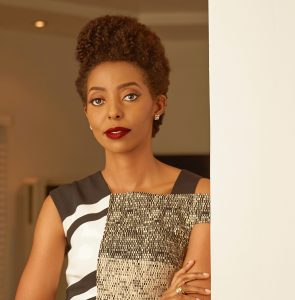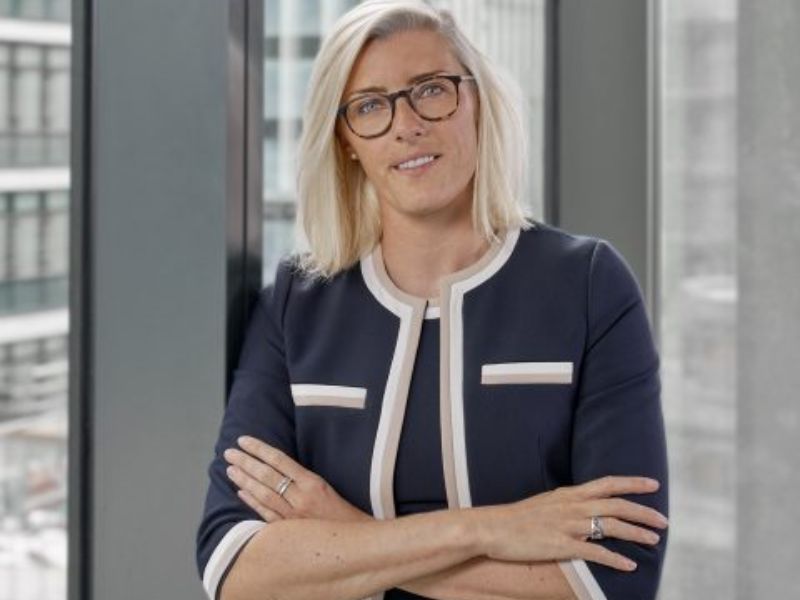 Amy Jadesimi is CEO and Managing Director of LADOL, the largest privately owned sustainable economic free zone in Nigeria.
Amy Jadesimi is CEO and Managing Director of LADOL, the largest privately owned sustainable economic free zone in Nigeria.
Aside from her profile as a leader in Nigeria and Africa’s corporate ecosystem, Amy is a long-standing champion for global sustainability and has recently spoken at various conferences and the U.N. General Assembly on a range of topics including gender parity and sustainability.
She is one of Africa’s few female CEOs, an Archbishop Desmond Tutu Fellow and, a Young Global Leader by the World Economic Forum. In 2014, Forbes included her in The 20 Youngest Power Women in Africa; in July 2015, the Financial Times named her one of top 25 Africans To Watch; in 2018 she was named Young CEO of the Year at the Africa CEO Forum. Alongside her work with LADOL, she is on the Prince’s Trust International global advisory board, a founding commissioner of the Business and Sustainable Development Commission, and is Vice-Chairman of the Board of Directors of the Global Maritime Forum.
Amy holds a MBA from Stanford University, as well as a BA and BMBCh from the University of Oxford.
Tell us a bit about yourself, background and your current role
I am the Managing Director of LADOL Free Zone (LADOL), the first 100% indigenous Sustainable Industrial Special Economic Zone in Nigeria. Essentially, LADOL is a small industrial village. My job there requires me to manage projects across several sectors and disciplines, as well as a wide range of clients, advisors and other stakeholders, all in an environment that demands unique solutions, resilience and professional independence.
I come from a medical background, having trained as a medical doctor at Oxford University and Hospital. After graduating from medical school, I worked at Goldman Sachs, where I gained extensive experience in investment banking. Having a diverse professional history allowed me to develop a comprehensive and versatile set of skills, which has been an invaluable asset for the successful development and management of an organisation such as LADOL.
The Zone has been operational for 14 years and in this time we’ve significantly reduced costs and increased transparency in the oil and gas logistics support sector, much to the chagrin of some but to the benefit of the vast majority. Our success has proven that indigenous companies operating and making long-term investments into infrastructure, facilities, equipment and human capital development are key to the sustainable industrialisation of Nigeria. At LADOL, we’re fully committed to the United Nations Sustainable Development Goals (SDGs). We integrated the SDGs into our business model because we recognised, even before they were ratified, that by following the SDGs we would be a more profitable, resilient company. After almost two decades of hard work, we are now focused on replicating our success and sustainable industrial master plan across Africa.
Did you ever sit down and plan your career?
I planned each step before I made it, but I’ve always remained open to new opportunities. Going to medical school was a short career in itself, one that gave me a deep understanding and respect for people, as well as strong interpersonal skills. But while I was studying, I realised I had other interests, particularly in the world of business and finance, and that was what led me to Goldman Sachs, a job I loved.
After three years at Goldman Sachs, I enrolled at the Stanford Graduate School of Business to broaden my entrepreneurial education. The skills and experience I gained from Oxford, Goldman Sachs and Stanford were all critical in giving me the confidence to move to Nigeria and take a job with LADOL. Over the years, the additional experience I’ve gained has convinced me that LADOL’s journey towards being a fully Sustainable Industrial Special Economic Zone is the right one for me, the company and, importantly, for our wider stakeholders in the country and, perhaps, the continent.
Have you faced any challenges along the way?
As is the case with all people, I have faced many challenges and struggled with many decisions over the years. As a Nigerian woman working in a male dominated environment, I face numerous challenges on a daily basis, an experience shared by many female leaders. The greater the level of success and responsibility, i.e. the more men you are leading, the more vociferously and emotionally people will attempt to object to your leadership. In Lagos, where I live, there is a growing community of female leaders, so I am sure it must be easier for me than it was for my mother and grandmother. But professionally, and personally, I’m often reminded of how far we still have to go until women are given equal levels of respect and opportunities to men, without having to work twice as hard to get them.
What has been your biggest achievement to date?
It’s difficult to pick just one. But I am extremely proud of what we have achieved at LADOL. Over the past 16 years, I have worked relentlessly with the team there to turn a disused swamp into a world class Sustainable Industrial Free Zone. Along the way, I have met some incredible people from all walks of life, some of whom have risked a great deal to ensure that the right thing is done and enable LADOL to grow and continue to add value to Nigeria’s economy and wider society. This journey has been the experience of a lifetime and, as all-consuming as it is, looking at where we started and where we are today always makes me proud to have played a part in it. The friends, stakeholders and colleagues that I have worked with along the way have proven to me over and over again that Nigerian people are capable of overcoming any challenge. Despite the current issues we face, the future of Nigeria is bright, as more often than not our people make the right decision for the society, the country and their families, when given the chance.
What one thing do you believe has been a major factor in you achieving success?
People have been my driving force. The people you surround yourself with can be one of the most, if not the single most important source of support, inspiration and motivation. LADOL has faced so many challenges and obstacles and, yet, our people, our team has worked relentlessly and poured their dedication and commitment into the company. This has been crucial to both the company’s success, as well as my own.
On a more personal note, I believe the social and intellectual exposure I’ve been privileged to benefit from through my education and professional experience outside of Nigeria has also been a determinant factor. My family are strong believers in hard work, and I was taught from an early age never to take anything for granted, giving me a strong work ethic.
How do you feel about mentoring? Have you mentored anyone or are you someone’s mentee?
I believe mentoring, both formal and informal, is extremely important. I’ve been lucky enough to receive formal mentoring both throughout my studies and time in investment banking. At LADOL, we are still developing our formal mentoring system. But we do have informal practices in place, which we proactively encourage. There’s always something we can share with others, both in terms of personal and professional experience. Similarly, there is always room for learning and being inspired by other people’s stories. Being able to engage and support others is critical.
Currently, I sit on the board of an international organisation called Endeavor, which seeks to support local enterprises and entrepreneurs. The work I do there is not only rewarding on a personal level, but it is also very important in shaping the future direction of Nigeria and ensuring its long-term development. This is the scale of the impact mentoring can have.
If you could change one thing to accelerate the pace of change for Gender Equality, what would it be?
To more rapidly ensure gender parity, we need to recognise that structural changes are needed. For example, we need to look at making paternity leave not only available, but also compulsory. I’m also an advocate of well-organised, positive recruitment and mentoring systems aimed at finding more qualified women to hire into jobs currently dominated by men. We need to ensure that there are fair structures in place to allow talented women to stay at work and build successful careers.
For developing countries, supporting women’s access to education, as well as their socio-political inclusion, could be the difference between success and failure. The research is clear. Gender parity increases GDP and company profits. The McKinsey Research Institute estimates USD 28 trillion (26%) would be added to the global GDP if we had equal gender representation in the workplace by 2025. More importantly, an educated woman often leads to an educated family, with significant multiplier effects. Given how much harder it still is, relatively speaking, for women to succeed and thrive than it is for men, this is an important issue that needs to be urgently addressed.
If you could give one piece of advice to your younger self what would it be?
I would advise my younger self to take more time for herself and spend more time in Nigeria.
What is your next challenge and what are you hoping to achieve in the future?
In the future, I will focus on turning LADOL into a blueprint for the sustainable industrialisation of Africa and replicate the model across the continent. At the same time, I want to work with organisations and companies that are supporting the growth and emergence of indigenous businesses from low income, high-growth countries across the world. This is a crucial step to empower local communities and create a more sustainable, prosperous and peaceful global community. We need to build a long-term legacy for the generations to come. For me, this is without doubt one of the greatest challenges and opportunities ahead.








